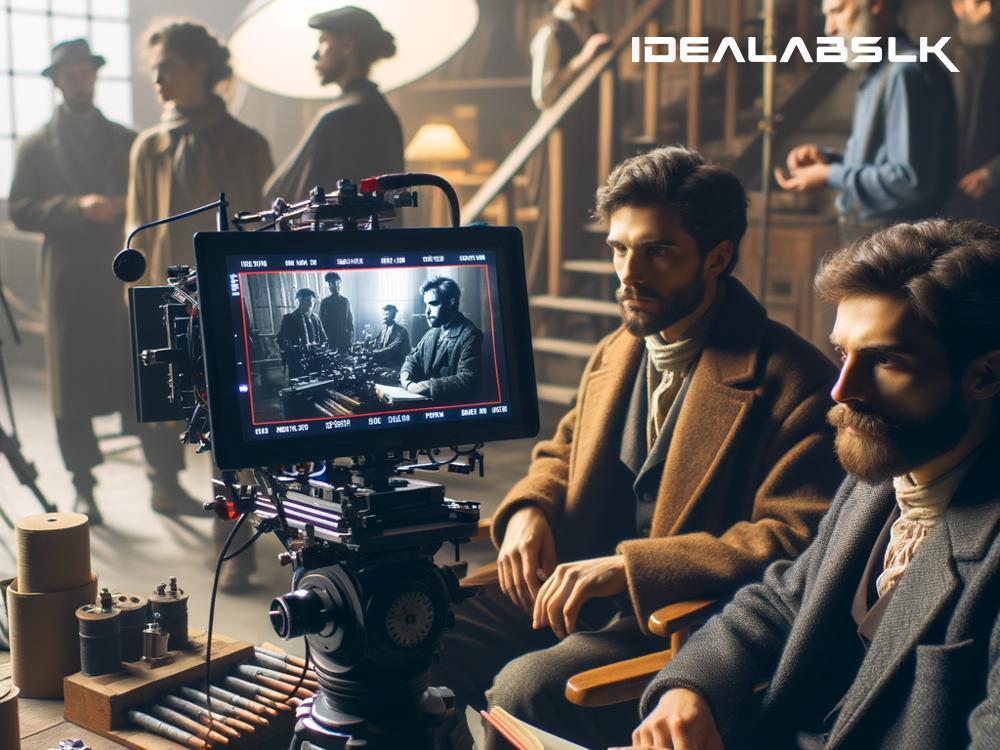Title: How AI Transforms the Making of Celebrity Biographical Films
The world of filmmaking is dazzling, bringing stories to life that either spring from vivid imaginations or from the rich, complex narratives of real lives. Among these, celebrity biographical films, or biopics, hold a special place by giving us a glimpse into the lives of individuals who've left a lasting impact on society. These films require meticulous research, careful portrayal, and a nuanced understanding of the person's life to do justice to their story. It's no small task, and interestingly, Artificial Intelligence (AI) has stepped in to revolutionize how these films are made. Let's explore how AI is optimizing the production of biographical films about celebrities, making the impossible seem increasingly attainable.
Streamlined Research
At the heart of any biographical film lies exhaustive research. AI has significantly simplified this process. Smart algorithms can sift through massive amounts of data, from newspaper articles, journals, interviews, to video footage, in a fraction of the time it would take a team of humans. These AI systems are also capable of identifying patterns and connections that might not be immediately obvious, providing filmmakers with a richer, more detailed tapestry of the subject's life. This not only saves precious time but also ensures the depiction is as accurate as possible.
Scriptwriting Assistance
Screenwriting for biopics is a careful balancing act—honoring the truth while crafting a compelling narrative. AI comes to the aid again. With natural language processing capabilities, AI can help scriptwriters by suggesting dialogue, structuring scenes, or even indicating where the emotional beats of the story should lie based on the analysis of successful biographical films. It doesn't replace the human touch but enhances the scriptwriter's ability to tell a more engaging and faithful story.
Casting Perfection
Casting is critical in biopics. The actors not only need to resemble the individuals they're portraying but also need to embody their essence. AI algorithms analyze numerous features from the facial structure to voice patterns, helping casting directors decide who would be the best fit for the roles. Furthermore, AI can scan through vast databases of actors, both well-known and new faces, to unearth talent that might have been overlooked, ensuring that the chosen cast resonates with the audience and authentically represents the characters.
Authentic Environment Creation
Recreating historical settings or specific locales accurately is paramount in biopics to immerse the audience fully. AI aids in this by analyzing historical data, photographs, and texts to help design sets that reflect the era or the personality's environment authentically. Moreover, with advancements in AI, filmmakers can now use virtual production techniques to generate these settings digitally, saving on the cost and logistics of physically constructing grand sets or traveling to distant locations.
Deepfake Technology for Realism
Perhaps one of the most talked-about applications of AI in biopics is the use of deepfake technology. This technique can be used to superimpose the celebrity's face onto an actor, making the portrayal astonishingly real. While this raises ethical considerations and requires careful handling, it opens up new possibilities for storytelling, allowing filmmakers to recreate moments with stunning accuracy without needing the person to be present or, in cases of posthumous biopics, alive.
Performance Enhancement
AI doesn't stop at just helping with the visuals; it extends into performance. Through analyzing vast amounts of footage, AI can guide actors on how the person walked, talked, or reacted in specific situations, helping them deliver a more authentic portrayal. This technology can even aid in improving the actor's delivery by suggesting intonations or gestures that are more in line with the person's character.
Final Thoughts
The integration of AI in the production of celebrity biographical films is not about diminishing the creative process but enhancing it. By taking over the labor-intensive tasks, AI allows filmmakers to focus more on the artistry, the narrative, and the emotional truth of the biopic. As AI technology continues to evolve, we can expect future biopics to become even more sophisticated, engaging, and true to life, making the impossible stories of yesterday the realized art of today. The future of filmmaking looks bright, and AI is holding the torch high, illuminating the path to storytelling that transcends boundaries and brings us closer to the legends we admire.

